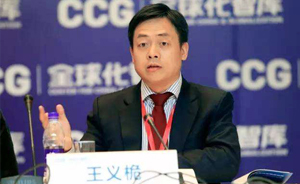China-Europe strategic ties essential for world politics
 China and Europe, at the east and west ends of the Eurasian continent, each holds an important position in the world. One of the priorities of China’s diplomacy toward Europe is to elevate the relations between the two to a more global and strategic level.
China and Europe, at the east and west ends of the Eurasian continent, each holds an important position in the world. One of the priorities of China’s diplomacy toward Europe is to elevate the relations between the two to a more global and strategic level.
On April 8, upon his arrival at Brussels for the 21st China-European Union (EU) leaders’ meeting, Chinese Premier Li Keqiang expressed that in the current situation, China is willing to work with the EU to strengthen coordination and cooperation on international issues, uphold multilateralism and free trade, consolidate the global and strategic significance of their relations, and contribute to world peace, stability and prosperity.
In the world political arrangement, the EU shoulders multiple missions. One is to maintain the world’s diversity. A proponent of multi-polarization and multilateralism since its birth, the EU is China’s natural partner for cooperation and negotiation. A second mission is to counter challenges posed by uncertainty in the world. As the international organization with the highest degree of integration in today’s world, the EU has formed from the accumulation of treaties one after another to be a stable and normative global force. A third mission is to promote world development. The joint efforts of China and the EU could make a crucial contribution to preventing the world from retrogressing on the course of history.
The influence of the EU extends beyond the union itself. It is a guarantor of European prosperity and stability and is an important carrier of European identity. On the global scale, the EU tends to have the “28 times 3” effect—the influence it has in the international community is three times the number of its member states.
For a long time, the EU has been China’s biggest trade partner, first major source of technology and an important source of foreign investment. China is the EU’s second largest trade partner. Given the EU’s unique position in international influence and China-related public opinion, it is also an important force that China can turn to for the enhancement of the country’s soft power and international image.
Last year, the EU issued a policy document on its Eurasian Connectivity Strategy, which stresses cooperation with China and alignment with the Belt and Road initiative. During Chinese and European leaders’ meetings, the two sides actively compared notes on a timetable and roadmap for intensifying negotiations on a China-EU Bilateral Investment Treaty, worked together to make notable progress in the negotiation of the China-EU Agreement on geographical indication, and held the fourth China-EU Innovation Cooperation Dialogue. These efforts are conducive to cultivating new focal points in the cooperation between the two sides. Regarding Europe as an important pole of power in the world, China has unswervingly supported the continent’s integration process, and is willing to witness a united, prosperous Europe that continues to advance that process.
The common interests of China and Europe far exceed their differences, as Premier Li pointed out in the German newspaper Handelsblatt: “Faced with rising instabilities and uncertainties in the international situation and a resurgence of protectionism, unilateralism and anti-globalization sentiments, China and Europe need to jointly uphold multilateralism and the free trade system by following a strategic and global perspective and a sensible approach. Our two sides need to work together to promote an open world economy and address long-running issues and new challenges confronting society to inject stability into an increasingly uncertain world.”
This article was edited and translated from the Overseas Edition of People’s Daily. Wang Yiwei is the Jean Monnet Chair Professor from Renmin University of China and a senior research fellow from the Chongyang Institute for Financial Studies at the university.
(edited by BAI LE)


